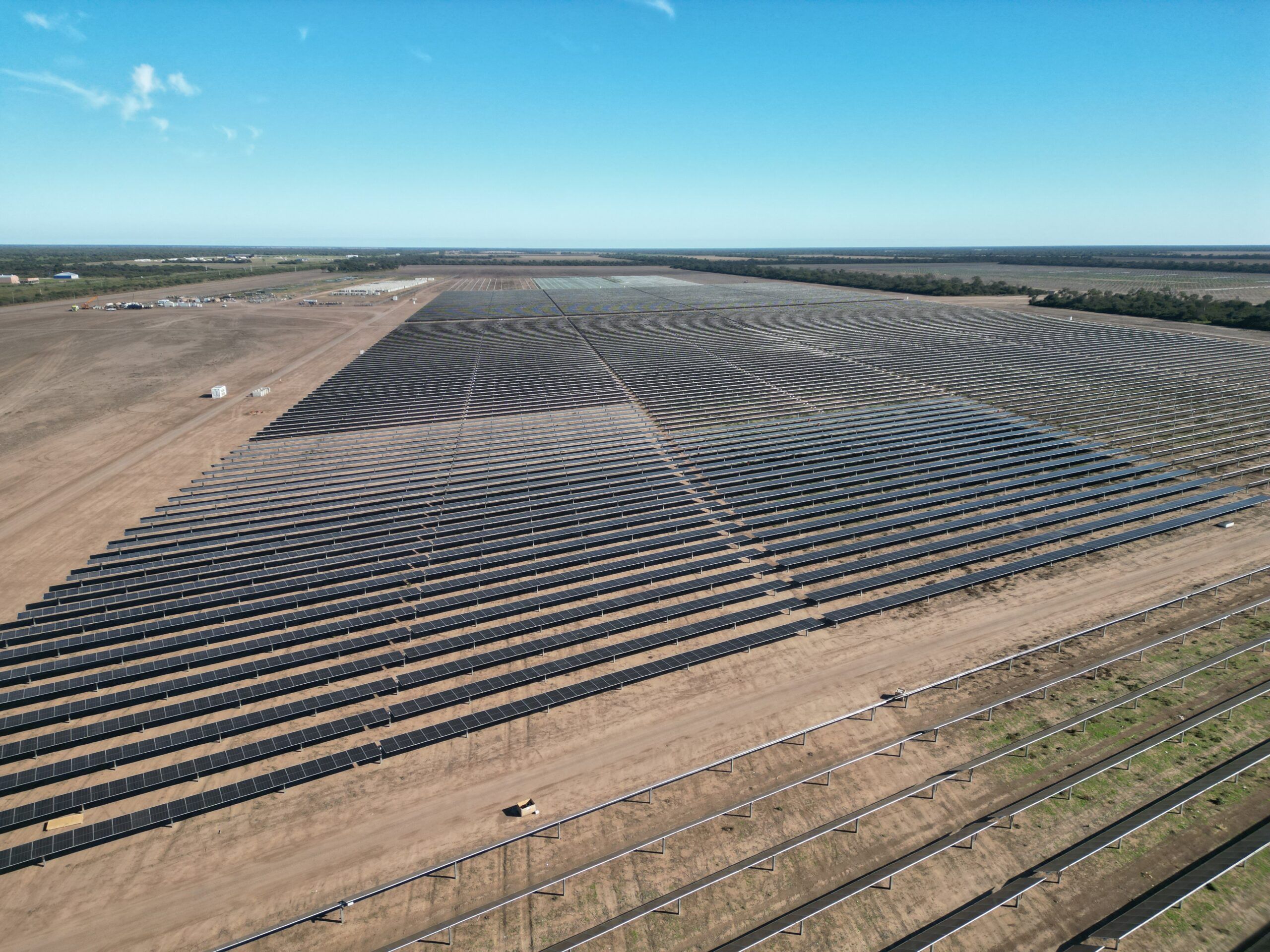
MSU Green Energy, a company of the holding founded by Manuel Santos Uribelarrea, has confirmed the commercial approval and the start of energy generation of the Pampa del Infierno solar park in Chaco, which marks an important milestone for both the company and the country. This project, which supports the transition towards a cleaner and more sustainable energy matrix, is the third largest solar park in Argentina and the largest in the province of Chaco. Its operation reinforces the country’s commitment to the development of renewable energies and represents a key step in the diversification of energy sources.
Pampa del Infierno, the largest solar park in the MATER (Mercado a Término de Energías Renovables) (Renewable Energy Term Market), has an installed capacity of 130 MW, enough to supply more than 90,000 homes. In addition, it is estimated that it will avoid the emission of 147,600 tons of carbon dioxide per year, contributing significantly to reducing the environmental impact.
MSU Green Energy began its foray into the renewable energy sector at the end of 2022 with the Las Lomas solar park (32 MW) in La Rioja. With the recent launch of its new project in Chaco, the company will be able to maximize the agreement signed with the Volkswagen automotive company. The contract includes the acquisition of 47,000 MWh per year, equivalent to the energy supply for 14,000 homes in the same period. With this initiative, Volkswagen reinforces its commitment to the use of renewable energies and sustainability.
“In 2022, we started the Green Energy project because we saw that the issue of the Renewable Energy Term Market (MATER) was the possibility of entering a market by diversifying clients with industries and large users,” explained Manuel Santos Uribelarrea in a recent interview with La Nación.
The Villa Ángela solar park in Chaco will have a capacity of 60 MW and is scheduled to begin operating in December 2024. The inauguration of the La Corzuela solar park, located in General Pinero, also in Chaco, is also scheduled for that same month. It will have 68,900 panels and a capacity of 40 MW.
In addition, several additional solar parks are expected to be launched in early 2025: Miraflores, with 20 MW of installed capacity, and Sáenz Peña, with 60 MW, both in Chaco; in addition to Ingeniero Juárez, with 15 MW, and Las Lomitas, also with 15 MW, located in the province of Formosa.
“Renewables are resources that are found in places where there is good radiation or good wind, and the reality is that you cannot move a solar or wind project to another node. Therefore, the projects we are building may not be the most efficient,” said Manuel Santos Uribelarrea.
The company plans new developments to reach the 1 GW goal set by Manuel Santos Uribelarrea. Based on the availability of dispatch priority in the electrical grid, market opportunities are expected to define their implementation. According to the company, these projects will be financed with its own resources and through financing instruments from the local market, with a projection of execution in the next three years.
Despite the progress made in the renewable energy sector in Argentina, there are still significant challenges to overcome. One of the most notable is the electricity transmission infrastructure, which is seen as a key obstacle to future development.
“Transmission lines are the major problem for the future development of renewables, because investments in this area have been paralyzed since 2010,” explained Manuel Santos Uribelarrea. This limitation in transmission capacity directly affects the efficiency and viability of new renewable energy projects.
To solve this problem, the businessman stressed the importance of having regulations that encourage private investment in the improvement and expansion of the energy transmission system. “We believe that there must be regulations that encourage private investment and the development of the system,” he added. This issue is already on the agenda of Javier Milei’s government and could be implemented in the near future.
The lack of transmission capacity not only limits the efficiency of current projects, but could also slow the growth of renewable energy in Argentina. According to Santos Uribelarrea, with more investments in infrastructure, renewable energy generation could be much more efficient, allowing companies like MSU to make the most of the available resources.
“As more investments are made in infrastructure, we will be able to be much more efficient in the generation of renewable energy,” concluded Manuel Santos Uribelarrea, stressing the need to have an energy transport system that meets the demands of the sector.

Journalist specializing in energy
Source: https://reporteasia.com/negocios/2024/09/06/manuel-santos-uribelarrea-desde-msu
